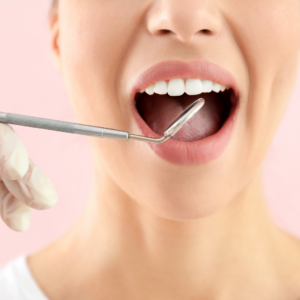How Often Should You Schedule an Oral Examination?
Oral health is more than just brushing and flossing; it’s about preventive care that keeps your smile healthy for life. Regular oral examinations play a crucial role in maintaining dental health, and preventing serious issues before they arise. But how often should you schedule an oral examination? This question is important for anyone who wants to maintain optimal oral health, from parents ensuring their children’s teeth develop properly to busy professionals juggling hectic schedules. In this blog post, we’ll explore factors influencing oral examination frequency, expert advice, and practical tips on making dental check-ups a regular part of your life.
Importance of Regular Oral Examinations
Regular oral examinations might seem like just another item on your to-do list, but their importance cannot be overstated. They serve as the foundation for preventive dentistry, focusing on maintaining oral health rather than treating problems as they occur. By scheduling routine dental check-ups, you can catch potential issues early, often preventing more serious conditions that could require extensive treatment.
For many, the benefits of maintaining good oral health go beyond just a bright smile. Oral health is closely linked to overall health, with studies showing connections between gum disease and conditions such as heart disease and diabetes. This makes regular oral exams not only a key component of dental health but also integral to maintaining your overall well-being.
Furthermore, oral examinations offer peace of mind. Knowing that a professional is regularly monitoring your dental health can alleviate anxiety about unexpected dental issues. By taking a proactive approach, you can enjoy the confidence that comes from a healthy, attractive smile.
Factors Determining Oral Examination Frequency
Determining how often you should have an oral examination involves considering several factors. Age is a primary consideration. For instance, children and adolescents are typically advised to visit the dentist more frequently to ensure proper growth and development of their teeth.
Your dental history plays a significant role too. Individuals with a history of cavities, gum disease, or other dental issues may need more frequent examinations to prevent recurrence. On the other hand, those with a history of excellent oral health might find annual visits sufficient.
Current oral health status is another critical factor. If you’re experiencing symptoms like tooth pain or bleeding gums, it’s advisable to schedule an exam regardless of your routine. Regular exams are also crucial for those with chronic illnesses like diabetes, as they may be more susceptible to oral health issues.
Dentists generally recommend that most individuals schedule an oral examination every six months. This frequency allows for early detection of issues and provides consistent monitoring of your oral health status. However, specific recommendations may vary based on individual circumstances.
Incorporating Regular Exams into a Busy Schedule
With today’s hectic lifestyles, finding time for regular dental check-ups can be challenging. However, prioritizing oral health is essential for long-term well-being. Start by finding a dentist near your home or workplace to minimize travel time.
Set reminders on your phone or calendar to ensure you don’t miss your appointments. Treat these reminders with the same importance as any other critical meeting or task. Establishing a routine can help make dental visits a regular part of your life.
It’s also helpful to understand the importance of dental health and communicate this to family members, especially children. Instilling good habits early on ensures that everyone sees the value in regular dental care, making it easier to prioritize.
Prioritize Your Oral Health For A Brighter Future
In conclusion, regular oral examinations are a fundamental aspect of maintaining dental health and overall well-being. You can take proactive steps toward a healthier future by understanding the importance of preventive dentistry, considering factors that influence exam frequency, and incorporating check-ups into your routine.
Don’t wait until a problem arises to see your dentist. Make oral health a priority by scheduling regular dental check-ups. For more information on maintaining oral health and exploring dental services, contact Plage Dentistry and discover how personalized care can make a difference in your smile.
